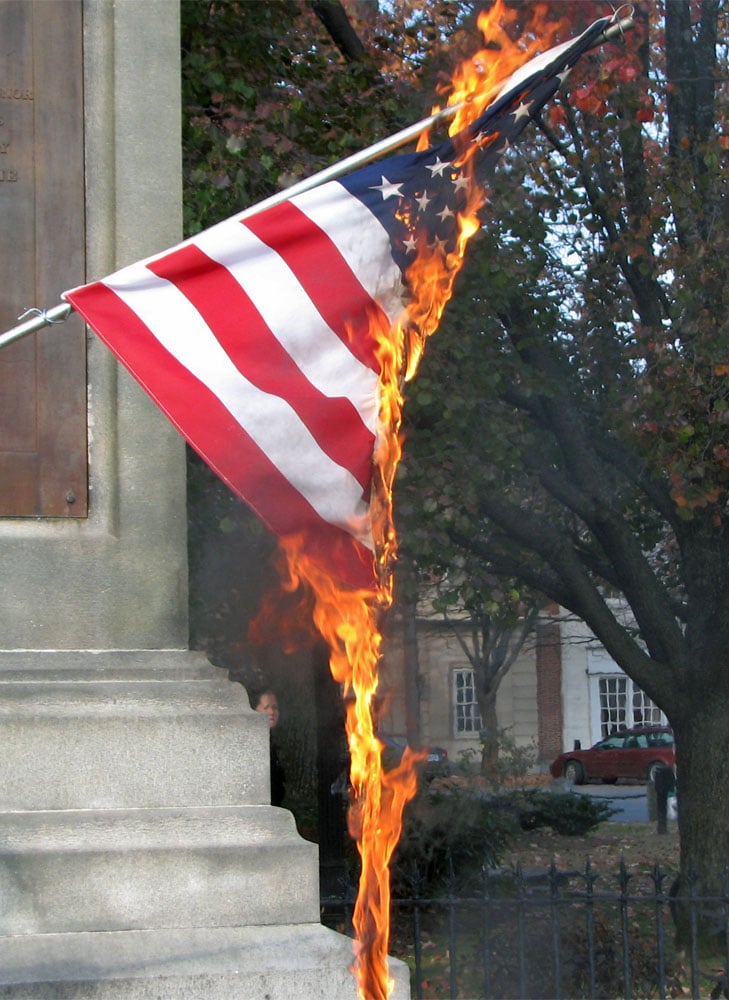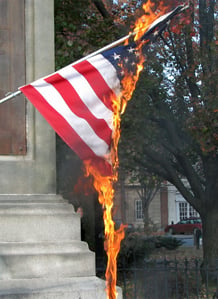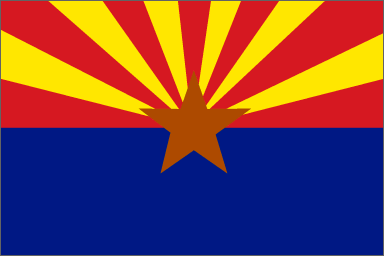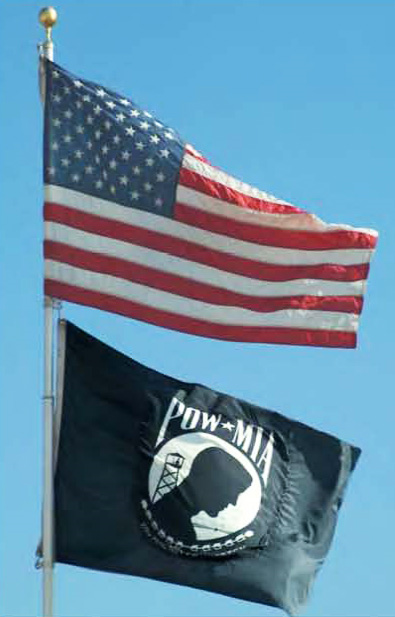A Brief History of Flag Burning Laws
Like many forms of political protest in the U.S., modern flag burning originated during the Vietnam era. (The first recorded flag burnings were by Southerners protesting Abraham Lincoln just before the Civil War, but there is no real evidence that it continued before Vietnam.) In keeping with the heightened wartime rhetoric, nearly every state made desecrating the flag a crime--sometimes with new laws, sometimes via the invocation of little-used laws already on the books. In 1968, Congress passed the first federal anti-desecration law in response to an incident in Central Park. One year later, the Supreme Court found in Street v. New York that a state law was unconstitutional in that it allowed the plaintiff, Sidney Street, to be convicted merely for speaking ill of the American flag. The Court, however, did not rule on whether or not laws against flag burning (which Street had also done) were also unconstitutional.
Free Speech and The Supreme Court
That precedent did not change for two decades, in Texas v. Johnson. In 1984, a man named Gregory Lee Johnson was arrested and convicted for burning a flag during that year's Republican National Convention. (The incident caused Congress to introduce a Constitutional amendment against flag burning, which led to a wave of new flag burnings nationwide.) Five years later, the Supreme Court decided that flag burning itself was protected speech under the Constitution; after Congress changed the anti-desecration law to fit the guidelines of Texas v. Johnson, the Court continued to overturn convictions on the basis that those convictions were still made to limit free speech.
Flag Burning as a Form of Protest
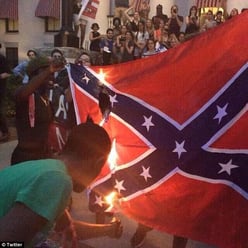 Flag burning exists, as mentioned, as a form of protest. Flags are highly recognizable symbols; blended with national pride, they evoke a powerful sense of patriotism within large majorities of people (in most countries) that love where they live. Because of this, burning one becomes one of the most powerful forms of protest possible, both in what it says about the strength of the burner's anger and in the backlash it receives from those who view desecration of the flag as a desecration of their home. This applies whether the burner is an American or a citizen of a different nation protesting something that America has done in their homeland.
Flag burning exists, as mentioned, as a form of protest. Flags are highly recognizable symbols; blended with national pride, they evoke a powerful sense of patriotism within large majorities of people (in most countries) that love where they live. Because of this, burning one becomes one of the most powerful forms of protest possible, both in what it says about the strength of the burner's anger and in the backlash it receives from those who view desecration of the flag as a desecration of their home. This applies whether the burner is an American or a citizen of a different nation protesting something that America has done in their homeland.
Even though the United States has declared flag burning a protected form of speech, other countries have legal repercussions for those who do it. Interestingly, while many Americans would assume the strictest laws exist in the most totalitarian countries, that is not at all the case. China, for example, has sentences as short as fifteen days for flag desecration. Russia does not appear to have any law against it.
On the other hand, some of the strongest laws against flag burning are in a few of the United States' closest allies. France can fine a person up to 7,500 Euros, and throw them in jail for six months, if they burn a French flag at a large gathering. South Korea's laws can apply to flag desecration done by non-citizens outside the boundaries of South Korea. And in 2016, Israel passed a law that allowed up to three years in prison for anyone convicted of burning not just an Israeli flag, but one of an allied country as well.
Whether you consider it acceptable or not, flag burning is a serious method of protest with a history worth knowing. If you're interested in flags, custom banners, flag repair, or how to correctly retire a flag, contact the flag specialists at Accent Banner to learn more.

